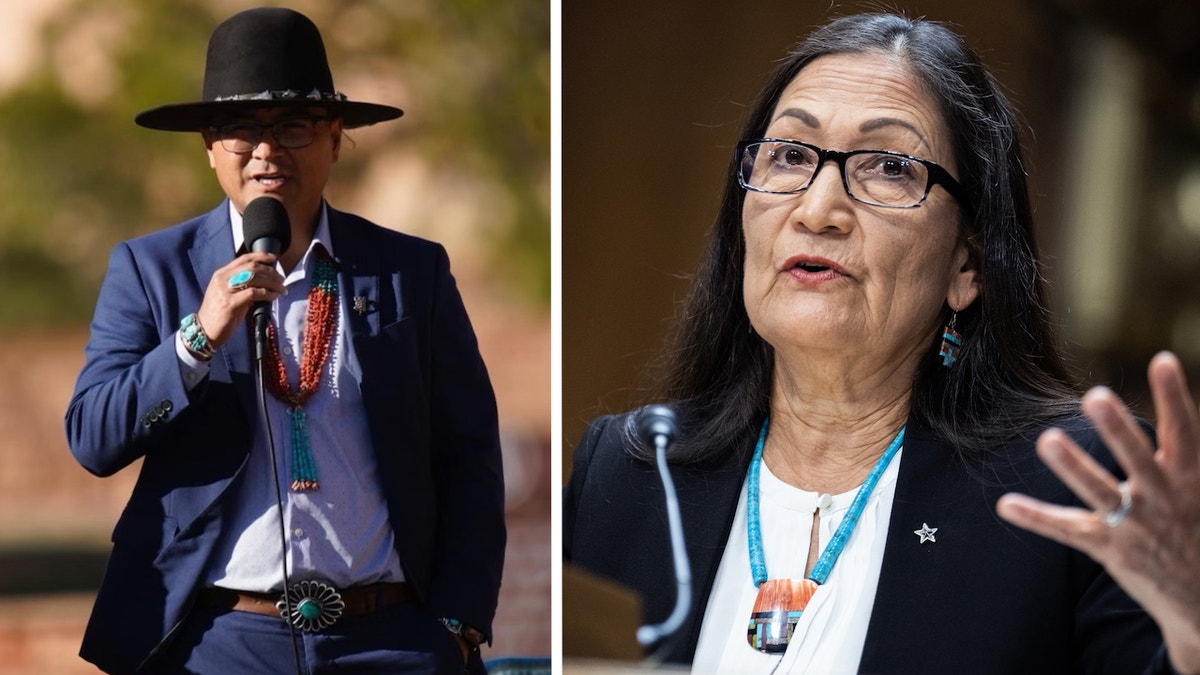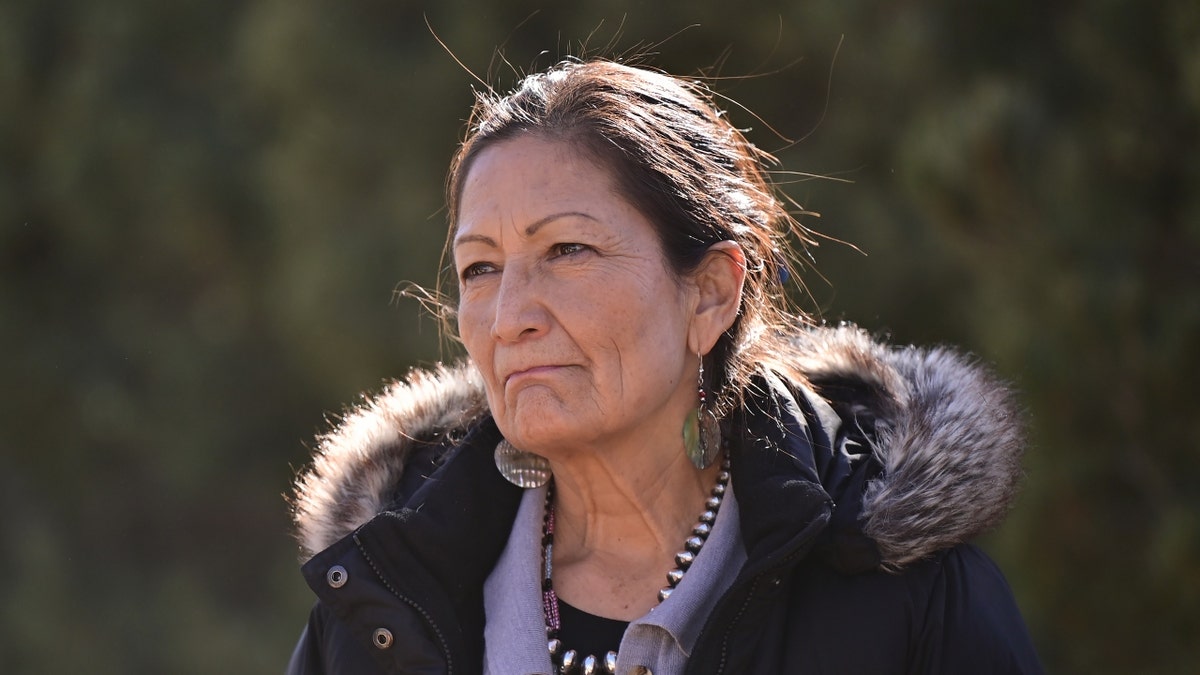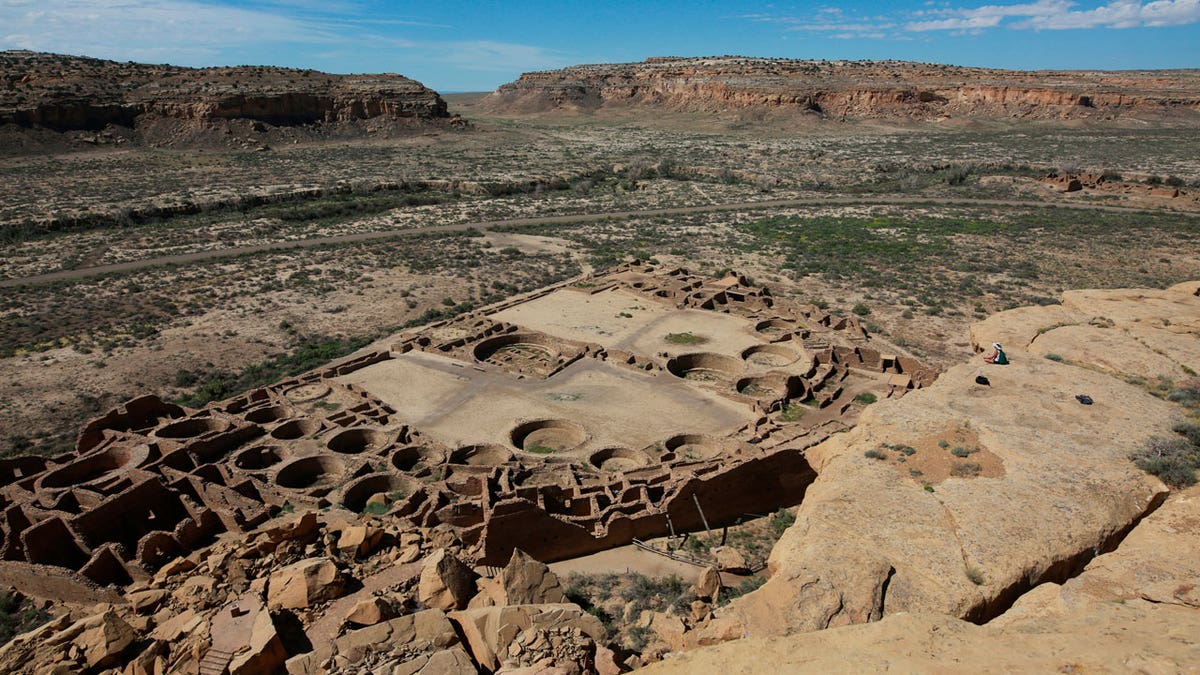'Godfather of AI' says tech threat to humanity is 'more urgent' than climate change
Technologist David Auerbach discusses growing concern about the use of AI from Dr. Geoffrey Hinton.
EXCLUSIVE: The president of the Navajo Nation told Fox News Digital that he has ordered the tribe's attorney general to weigh legal action following the Biden administration's oil-leasing ban impacting Navajo citizens.
Buu Nygren, the president of the Navajo Nation, a federally recognized tribe in the U.S. southwest, said that the Navajo Justice Department was considering pursuing litigation after Interior Secretary Deb Haaland's recent order, and he plans to protest her upcoming visit to the reservation on Sunday. Last week, Haaland banned oil, gas and mineral leasing within 10 miles of the Chaco Culture National Historical Park in northwestern New Mexico for 20 years, an action strongly opposed by nearby Navajo communities.
"To totally disregard those local communities — it's unfair," Nygren told Fox News Digital in an interview Saturday. "There's no need to celebrate putting people into poverty, to celebrate undermining the Navajo Nation's sovereignty, undermining everything that comes into working with tribes, in this case, Navajo Nation."
"I tasked the attorney general to look into all our options, because I want to be doing justice for the local community," he continued. "As president, I've already told my attorney general to look into all the options. So, we're going to be moving forward with that as well."
NATIVE AMERICAN LEADERS REBUKE BIDEN ADMIN OVER OIL LEASING BAN: 'UNDERMINES OUR SOVEREIGNTY'

Navajo Nation President Buu Nygren criticized Interior Secretary Deb Haaland for moving forward with an oil-leasing ban on Navajo lands. (Navajo Nation | Tom Williams/CQ Roll Call via Getty Images)
Nygren and other Navajo leaders, in addition to locals, have argued that the Department of the Interior's (DOI) action banning leasing will harm low-income Navajo citizens who depend on revenue from leasing their allotments within ten miles of Chaco Canyon mainly to fossil fuel companies.
The allotments date back to the 1900s, when the federal government awarded them to Navajo citizens as a consolation when the tribe's territory was downsized.
"Since I've entered the legislative body for my Navajo people, I've listened to a lot of constituents out in that area and, you know, it's just emotional distress, psychologically as well, that they've talked about this — it really disturbs me to know how much more of a hardship that these folks are going to be experiencing out there," Brenda Jesus, who chairs the Navajo Nation Council's Resources & Development Committee, told Fox News Digital earlier this week.
REPUBLICANS RAISE ETHICS CONCERNS OVER BIDEN CABINET OFFICIAL WHO ORDERED OIL LEASING BAN
Jesus led a delegation of Navajo tribal leaders who met with lawmakers on Capitol Hill this week, making their case against the DOI's ban. Rep. Harriet Hageman, R-Wyo., who chairs a House panel on Indian affairs, said the action represented a "taking" of tribal lands and vowed congressional action following her meeting with the delegation.
Overall, there are currently 53 Indian allotments located in the 10-mile buffer zone around Chaco Canyon, generating $6.2 million per year in royalties for an estimated 5,462 allottees, according to Navajo Nation data. In addition, there are 418 unleased allotments in the zone that are associated with 16,615 allottees.
According to the Western Energy Alliance, an industry group that represents oil and gas producers in the area, Navajo members will lose an estimated $194 million as a result of Haaland's actions.

"Today marks an important step in fulfilling President Biden’s commitments to Indian Country by protecting Chaco Canyon, a sacred place that holds deep meaning for the Indigenous peoples whose ancestors have called this place home since time immemorial," Interior Secretary Deb Haaland said on June 2. (Hyoung Chang/MediaNews Group/The Denver Post via Getty Images)
"You can't pound your chest on going after people in poverty," Nygren told Fox News Digital. "I don't know who would want to celebrate that. Personally, I think that's, I don't know, you got to not have a heart if you're going to put people that are already impoverished in third-world-country conditions and barely have enough to pay for gas, food, laundry, the daily necessities — to put them into an even tougher situation."
"To me, I don't know how anybody could sleep with that thought," he said. "Come to Navajo. It's tough. Everybody's struggling, everybody's trying to make a dollar, literally."
BIDEN ADMIN HIT WITH LAWSUITS FOR HIDING COMMUNICATIONS INVOLVING CABINET SECRETARY’S DAUGHTER
Haaland is expected to visit Chaco Canyon on Sunday to celebrate the action. Nygren said that Navajo citizens are planning to peacefully protest the event and that he has even faced calls to block the interior secretary's access to Navajo roads.
"You shouldn't celebrate beating up people in poverty," Nygren said.

An archeological site is photographed at the Chaco Culture National Historical Park on Aug. 28, 2021. (AP Photo/Cedar Attanasio, File)
Nygren also noted that the Biden administration failed to offer any economic proposal to account for the income losses the Chaco land withdrawal would create for Navajo allottees.
In addition, Nygren criticized Haaland for not properly consulting the Navajo Nation and the communities near Chaco Canyon that would be most impacted by the action. The tribe previously endorsed a five-mile buffer zone to protect the site while ensuring future drilling on oil-rich allotments, but has said that Haaland never considered the compromise.
CLICK HERE TO GET THE FOX NEWS APP
"For her to go all over the country and the world to talk about tribal sovereignty and tribal communities and this and that. But then when it comes down to it, to put tribal sovereignty into question. Actions speak louder than words, in my opinion," he said.
While DOI stated Friday that the action won't impact existing leases or production on them, opponents of the ten-mile buffer zone said it would indirectly make Indian-owned allotments worthless. Because drilling on the Navajo allotments requires horizontal crossings that pass through federal land impacted by the ban, the action effectively ends all drilling in the area, they argued.














































